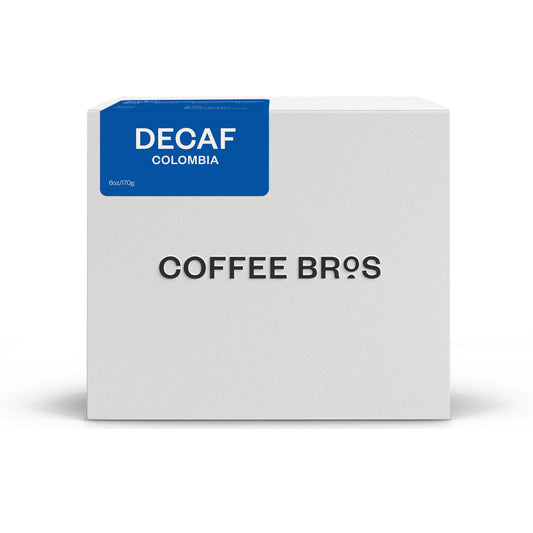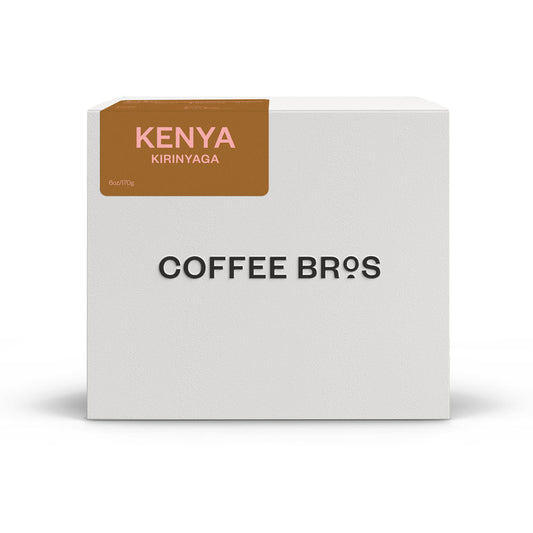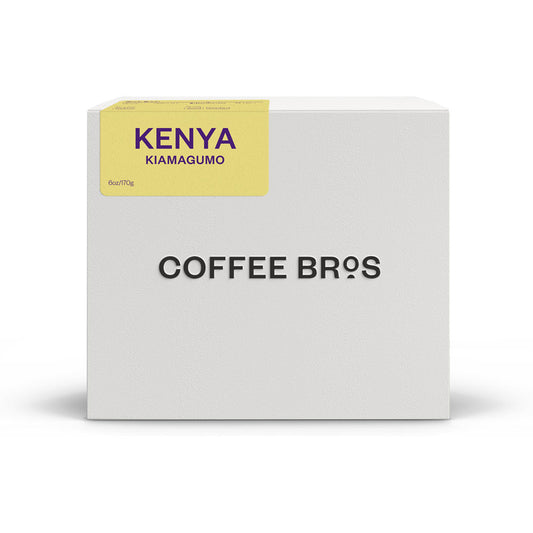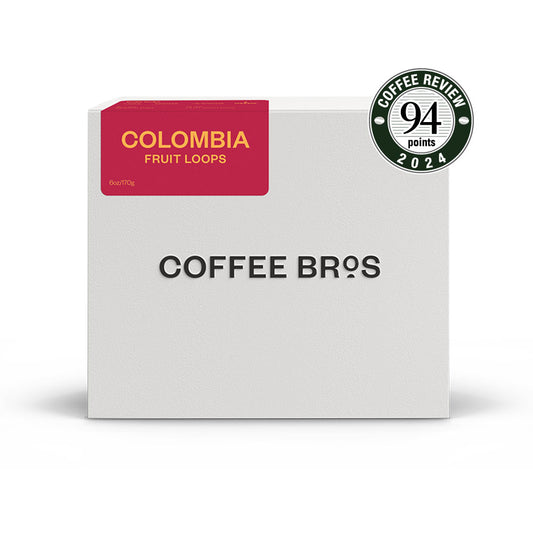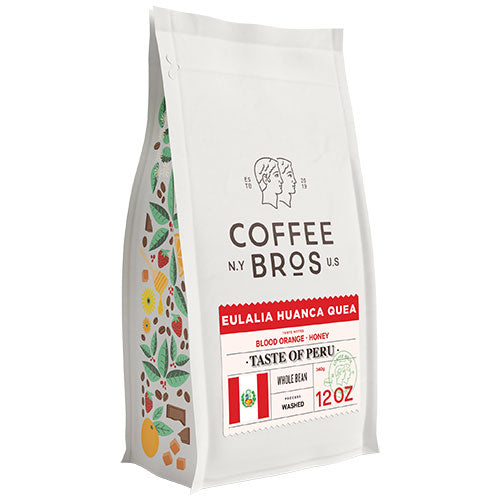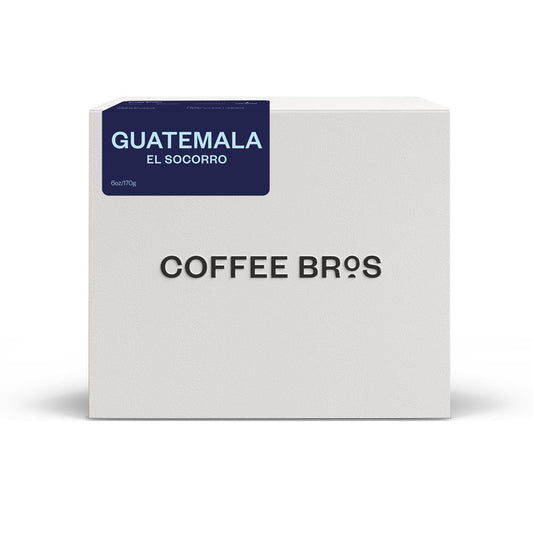Collection: Washed Process Coffee
The Washed or Wet process is widely used in specialty coffee to efficiently... separate the fruit from the seed. It can be done with or without water, and there are variations such as "Fully Washed" with water and other methods that mechanically remove the mucilage. Fruit removal involves depulping or demucilaging within 24 hours of harvest.
For fermentation, depulped coffees are typically placed in fermentation tanks for 12-72 hours, while demucilaged coffees are moved to drying surfaces or equipment instead of tanks. Fermentation can occur from harvest until the seeds reach 11% moisture content.
Drying time varies, with mechanical methods taking 18-36 hours on average, and drying on patios, raised beds, or in dryers lasting 7-15 days.
The profile of Washed coffees is characterized by clean and articulate flavors, caramel, or sugary sweetness. The fruit acidity can vary depending on other factors, and these coffees can exhibit bright and crisp notes.
Show more >-
Best Seller
Espresso Roast Coffee
A balanced and naturally sweet espresso - great for straight espresso or smaller milk-based drinks
A balanced and naturally sweet espresso - great...
Regular price From $10.29Regular priceUnit price / per -
Light Roast Coffee
An extremely sweet and delicate coffee with bright citrus notes
An extremely sweet and delicate coffee with bri...
Regular price From $10.29Regular priceUnit price / per -
Decaf Roast Coffee
A perfectly balanced decaf coffee with just the right amount of sweetness
A perfectly balanced decaf coffee with just the...
Regular price From $9.79Regular priceUnit price / per -
Sold out
Kenya AA | Kirinyaga | Washed
An adventurous coffee with notes of plum, cocoa, and lemon
An adventurous coffee with notes of plum, cocoa...
Regular price From $12.89Regular priceUnit price / per -
Kenya Peaberry | Kiamagumo | Washed
An adventurous coffee with notes of plum, cocoa, and lemon
An adventurous coffee with notes of plum, cocoa...
Regular price From $12.89Regular priceUnit price / per -
Colombia | Fruit Loops | Gesha Washed
A lightly-roasted Gesha coffee from our partners at In Conexus with taste notes of "Froot Loops" cereal!
A lightly-roasted Gesha coffee from our partner...
Regular price $37.99Regular priceUnit price / per$39.99Sale price $37.99Sold out -
New
Kenya AA | Riara Estate | Washed
An adventurous coffee with notes of plum, cocoa, and lemon
An adventurous coffee with notes of plum, cocoa...
Regular price From $12.89Regular priceUnit price / per -
Sold out
Puno Peru
Regular price $24.99Regular priceUnit price / per$27.99Sale price $24.99Sold out -
Best Seller
Espresso XO | Colombia | Natural
A creamy, fruit-driven espresso with dark chocolate richness—beautiful alone or in balanced milk drinks.
A creamy, fruit-driven espresso with dark choco...
Regular price From $14.39Regular priceUnit price / per -
New
Guatemala | El Socorro | Gesha Washed
A crisp and clean light roast with brilliant fruit-forward notes from our friends at Daye Bensa
A crisp and clean light roast with brilliant fr...
Regular price $39.99Regular priceUnit price / per
What is Washed Process Coffee
Where did the washed coffee process originate?
The washed process originated in Latin America but is often used in Africa, Central, and South America (with the exception of Brazil where it is uncommon.)
What does washed process coffee taste like?
The profile of Washed coffees is characterized by clean and articulate flavors, along with caramel or sugary sweetness. The fruit acidity can vary depending on other factors, and these coffees are capable of exhibiting bright and crisp notes.
Does washed coffee involve fermentation?
Frequently, the term "fermentation" is misused in this process. Fermentation actually begins when microorganisms start metabolizing sugars in the fruit, which can occur when an access point is created during picking. Fermentation in Washed coffees requires either fruit material (mucilage) or a certain moisture level (11%) to serve as a fuel source.
In the coffee industry, the "length of fermentation" refers to the time when coffee is piled in tanks or submerged in water to regulate microorganism access to the fruit material. "Open" or "dry fermentation" describes coffees that are depulped and left in open-air tanks with their mucilage for up to 24 hours. "Underwater" or "wet fermentation" can take longer, depending on climate, water quality, and microorganism activity.
Collections
-
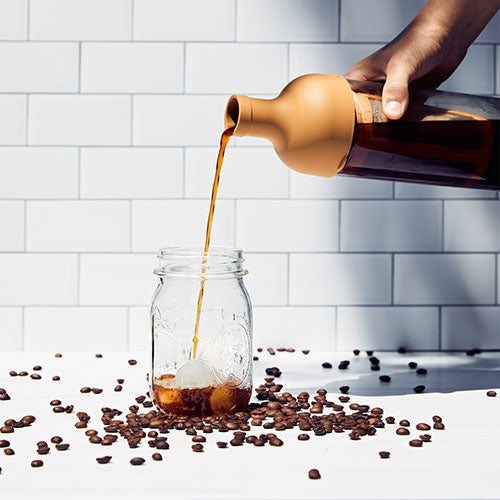
All Coffee
Experience the best specialty coffee with our selection of Signature Series, Single-origin,...
-
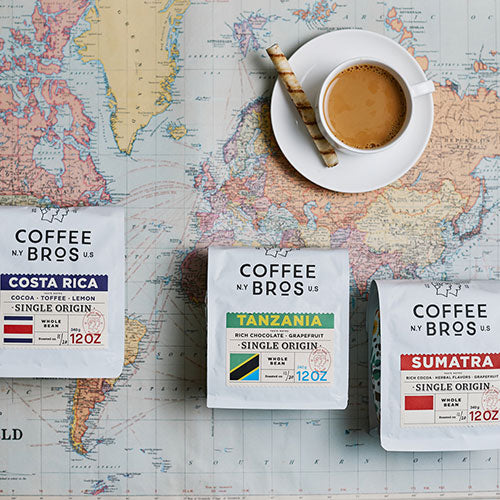
Single Origin
All of our single-origin coffees in this collection are 86+ point coffees...
-
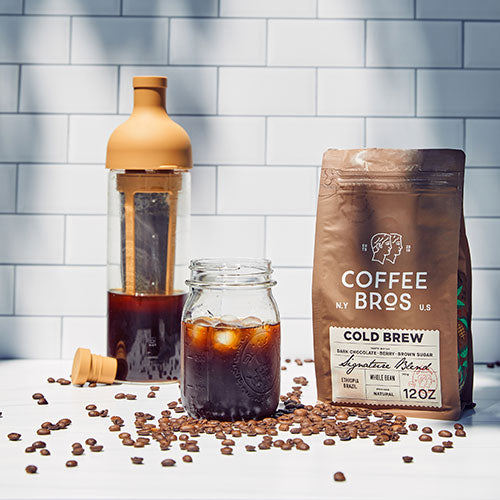
Signature Blends
Our Signature Blend coffees showcase unique flavor profiles that shine across any...
- Choosing a selection results in a full page refresh.



